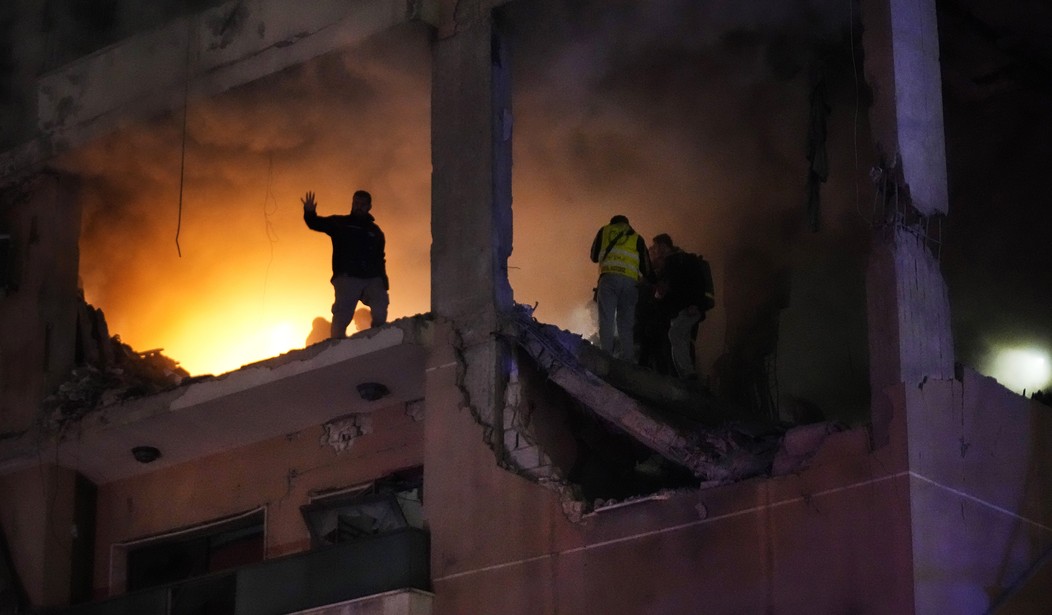While most of the media seems to still be focusing on Thursday's presidential debate, it's worth remembering that there are still a couple of wars going on, largely without any competent management from the United States in our previous role as a leader in global affairs. The one in Gaza isn't showing signs of ending any time soon, despite Hamas having been offered several opportunities for a ceasefire in exchange for the release of hostages and a cessation of their rocket attacks against Israel and other people in the region. What may not be obvious to many of us is why Hamas would continue to reject these opportunities when they are so clearly being obliterated by the IDF every time they are identified. NPR's Danielle Kurtzleben recently conducted a good interview with Hussein Ibish of The Atlantic who is a a senior resident scholar at the Arab Gulf States Institute. He shared his insights about the leadership of Hamas and what their motivations and strategies might be at this stage of the war. It's definitely worth a look if you want some additional background on where this all may be heading.
KURTZLEBEN: So what do you think Hamas' calculus is when it comes to any cease-fire negotiations?
IBISH: I think they're not terribly interested in one. If they could get the Israelis to agree to their absolute terms - an end to the conflict, release of major prisoners that - especially their own senior cadres, being held in Israeli jail and an end to the war on effectively their terms, a sort of a victory, they would take it. But I think they're more interested in having the Israelis stay in Gaza to serve as a lightning rod for a long-term insurgency.
I mean, I believe that this is not so much about attacking Israel as the end, but rather as a means to an end. And the end is power within Palestinian politics and the long-term Hamas goal that has not yet been realized of taking over the Palestinian national movement from the secular nationalists of Fatah, who have dominated it since it was reformed after the 1967 war.
Ibish shares plenty of additional observations, speaking as someone who has observed and been involved with the politics of region for a long time. It appears that viewing this conflict as a black-and-white confrontation between Hamas and the IDF is an oversimplification of the realities on the ground. It's true that Hamas would definitely like to destroy Israel and wipe out all of the Jews in the region, but Ibish believes that the terror group's leadership is fully aware that they don't have the military power required to defeat Israel on their own. We're also observing the byproducts of internal Palestinian political divides between Hamas and Fatah, previously known as the Palestinian National Liberation Movement.
Fatah and Hamas have been fighting for leadership in the Gaza Strip for a long time. They even went to war briefly in 2007, though that didn't lead to a resolution of their differences. Fatah was originally founded in 1965 by Yasser Arafat and some of his close allies. They still oppose the existence of Israel, but Fatah's leadership has at least been a bit more realistic and willing to negotiate for the benefit of the Palestinian people in the region. This puts them at odds with Hamas, which only sees the Jews as targets of opportunity until they can be exterminated or driven out of the region.
It's interesting that Ibish acknowledges that Hamas is passing on offers of a ceasefire because they don't see any benefit in it for their long-range goals. He sees the refusal of a ceasefire offer as a "means to an end" for Hamas. Accepting any sort of ceasefire terms would put them more in line with the position of Fatah and that's the opposite of what Hamas wants. This observation lines up with those of other analysts who have repeatedly stated that Hamas doesn't really care how many Palestinians are killed during IDF strikes because they believe that news of those deaths - no matter how grossly they exaggerate them - helps to build support for the Palestinian cause in the international community.
Ibish also points out that the previous leadership of Hamas was driven out in 2012, fleeing first to Syria and later to Qatar. When those representatives make announcements, they aren't really speaking for Hamas in the Gaza Strip. The current leadership in Gaza is far more radical. He also notes that Iran would not be able to exert much influence in ending the hostilities even if they wanted to. Iran funds Hamas and provides them with weapons and material, but Ibish believes that they aren't able to exert much if any direct operational control over Hamas' actions.
At the same time, support for Hamas among Palestinians seems to be on the decline, particularly in the West Bank. They continue to support Hamas' charter, but many of them are outraged over the devastation that is being visited on their people as a result of Hamas' attacks on October 7. We can think of those people as the more "pacifist" Palestinians. Unfortunately, they are not in a majority inside the Gaza Strip. So it appears that prospects for any sort of lasting peace between Israel and what's left of Hamas are potentially even worse than many of us had believed. But the reasons are also considerably more complicated.








Join the conversation as a VIP Member